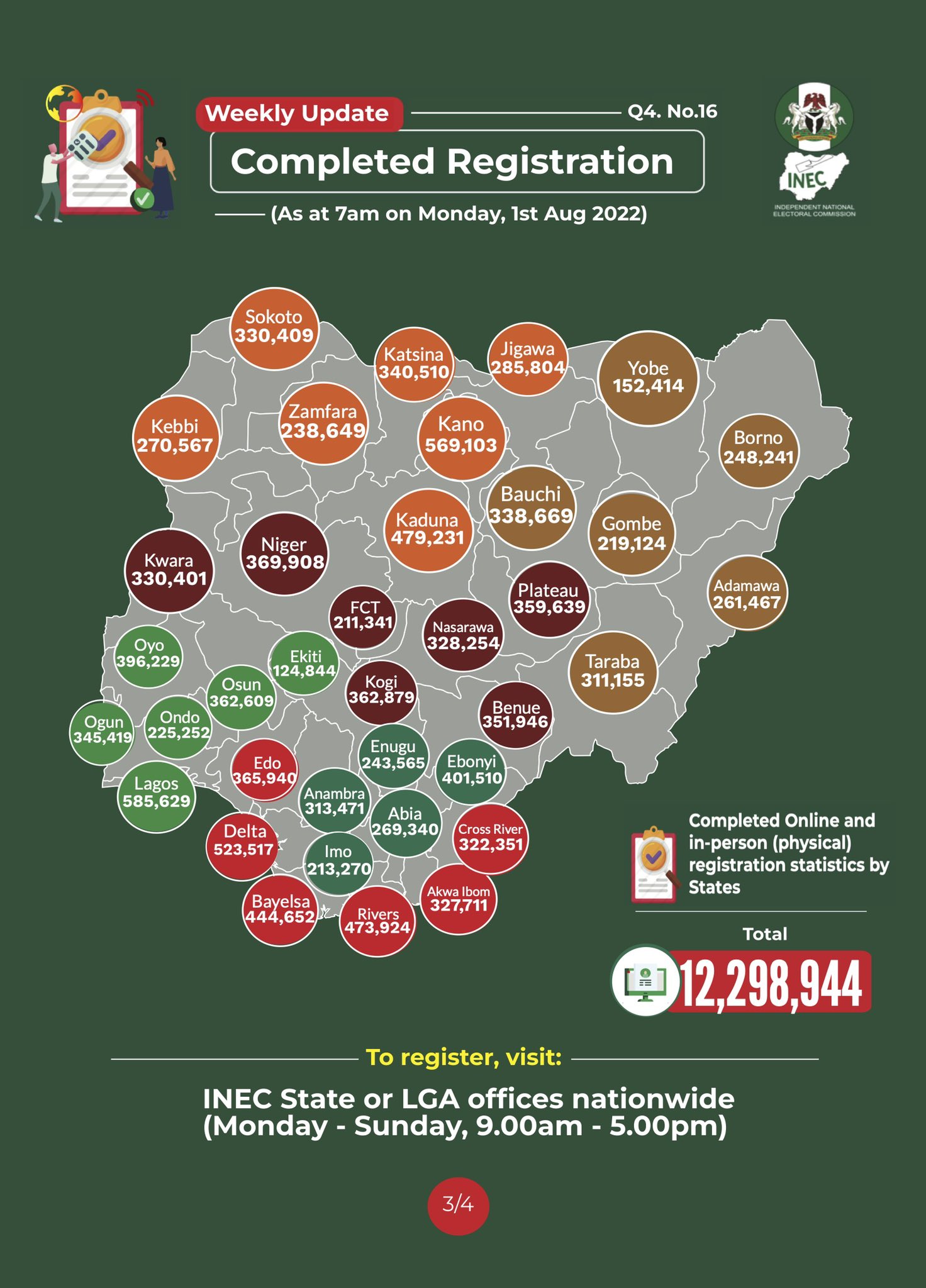PDP Challenges INEC on Voter Registration Numbers

Concerns Over Voter Registration Discrepancies in Osun State
The Osun State Chapter of the Peoples Democratic Party (PDP) has raised significant concerns regarding the voter registration statistics released by the Independent National Electoral Commission (INEC). The party highlighted a stark discrepancy between online pre-registrations and the number of individuals who completed the mandatory in-person registration process. This issue has sparked a broader debate about the transparency and credibility of the voter registration process.
According to INEC’s data, over 470,000 Nigerians in Osun State reportedly began their online registration within just two weeks. However, the PDP noted that only less than 600 registrants had completed the in-person process as of the time the report was issued. This disparity has led the PDP to question the integrity of the registration system.
In a statement released by its Director of Media, Oladele Bamiji, the PDP criticized the lack of a transparent mechanism for monitoring the registration process. The party emphasized that the exercise is meant to enable Nigerian citizens to participate in the electoral process, not to serve any other purpose.
The PDP pointed out that the under-reporting of Osun’s Continuous Voter Registration (CVR) figures raises serious questions about INEC’s data management. The party questioned how over 25,000 completed registrations captured by INEC officials across Osun could suddenly be reduced to just 500 in the national office’s report. Such a large gap cannot be dismissed as a clerical error.
Furthermore, the PDP expressed concern that Osun, a state where daily averages of 1,500 to 2,000 voters complete their in-person registration, would be falsely represented with only 500 completed registrations for the entire reporting period. This contradiction, according to the PDP, insults the intelligence of the electorate and undermines confidence in INEC’s preparedness for the upcoming elections.
The PDP demanded that INEC immediately correct the manipulated data, publish the authentic Osun figure of over 25,000 completed registrations, and explain the wide gap between field records and the national report. Failure to do so, the party warned, would be seen as an attempt to disenfranchise Osun citizens and lay the groundwork for electoral fraud.
The party also called for a detailed report of all completed registrations, including Voter Card transfer applications received and processed by the commission across all designated centers. This report should be made available to accredited political party representatives and Civil Society Organisations.
Additionally, the PDP urged INEC to open up the registration process to independent scrutiny by stakeholders to ensure it is free from manipulation or exaggeration for potential fraudulent motives. The party stressed that simply releasing figures without allowing for authentication and verification is insufficient for a democratic process.
The PDP reiterated its commitment to transparency in the voter registration process, emphasizing that it is the foundation of credible elections. The party stated that their demand for openness is essential for maintaining public trust in the electoral system.
Earlier, the African Democratic Congress (ADC) had also raised concerns over the figures from Osun’s online registration exercise, calling them “statistically implausible.” In response, Osun INEC, through its spokesperson Musa Olurode, dismissed these allegations. The commission highlighted that Osun State has consistently shown high levels of civic enthusiasm and responsiveness to voter registration.
INEC pointed out that during previous CVR exercises, Osun led other states in online pre-registration. The commission emphasized that online pre-registration is just the first step in the process and does not confer the status of a registered voter unless validated by in-person biometric capture at designated centers.
The commission also rejected the ADC’s claim of “statistical implausibility,” stating that the figures recorded are consistent with the state’s history of active civic engagement. INEC encouraged the public to view these figures as evidence of growing democratic awareness rather than baseless accusations.

Comments
Post a Comment